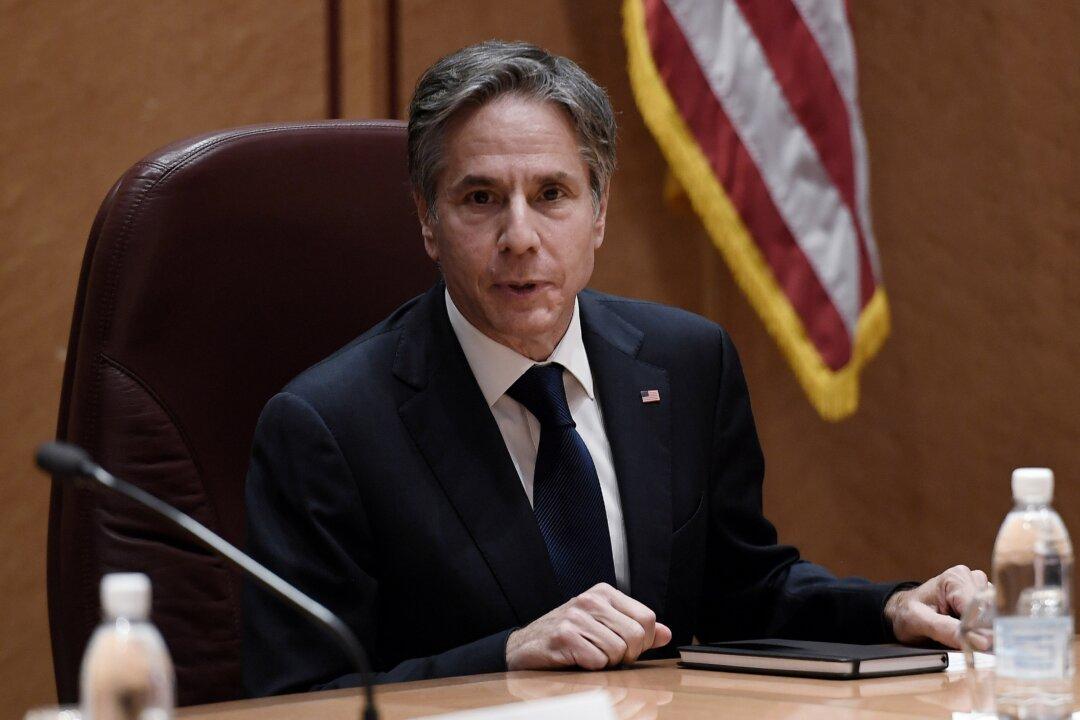The Chinese regime should cease its “provocative” military maneuvers near Taiwan, which is “dangerous” and risks miscalculation, U.S. Secretary of State Antony Blinken said on Oct. 6.
“The actions we’ve seen by China are provocative and potentially destabilizing,” Blinken told Bloomberg Television in Paris. “What I hope is that these actions will cease because there is always the possibility of miscalculation, of miscommunication, and that’s dangerous,” he said.





